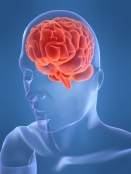
The prevalence of mild traumatic brain injuries with the risk of permanent brain injury is one of the most hotly contested conditions in personal injury claims and injury litigation. The dispute is usually around whether a person who has significant symptoms of cognitive and/or emotional dysfunction after the brain injury is suffering from permanent brain damage or is likely to recover. This fact will naturally have a significant effect on the outcome of any settlement negotiations or trial of an injury claim.
For both medical and legal purposes it is essential to evaluate a patient for the long-term consequences of brain injury by several different and slightly overlapping specialties as soon as possible after the accident or an incident giving rise to the injury. A good starting point is seeing a neurologist - a medical doctor who can evaluate the general health of the injured nervous system and its functioning. Neurologists can order an interpret brain scans looking for abnormalities in the brain structure (CT Scan, MRI) and metabolic function (PET, SPECT). The neurologist can also evaluate and treat the complications of brain injury, such as post-traumatic seizures and provide medical treatment for headaches and dizziness.
A neuropsychologist can evaluate changes in a person's cognitive or mental abilities and in behavior caused by the brain injury. This specialist can administer objective tests of memory, attention, problem-solving, sensory perception, planning, organization, and a long list of other types of cognitive ability. In some cases, the complex behavioral difficulties that can arise from brain trauma are treatable by psychiatrists, specializing in organic brain impairments - the doctors known as neuropsychiatrists.
Like with most other serious injuries, getting evaluation and treatment promptly can significantly affect the recovery of the person diagnosed with a traumatic brain injury.
 RSS Feed
RSS Feed
